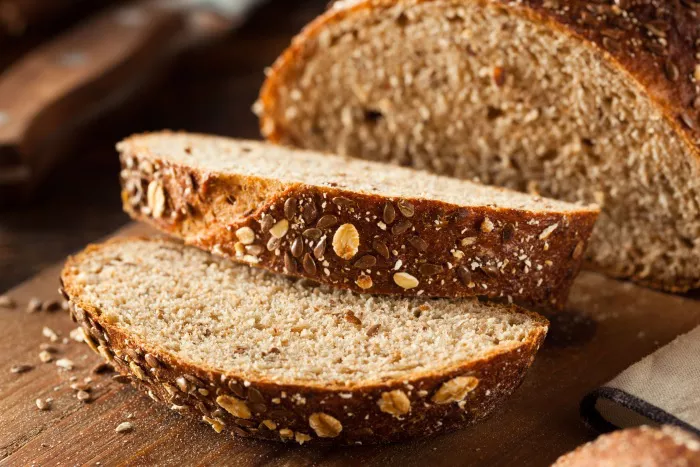In the realm of nutrition and wellness, the term “superfoods” has gained immense popularity, signifying nutrient-dense foods that offer a plethora of health benefits. At Harvard Medical School, renowned for its commitment to evidence-based recommendations, experts emphasize the importance of incorporating superfoods into your diet. These nutrient-packed powerhouses can contribute to overall well-being and help prevent a myriad of chronic diseases. Let’s explore the Harvard-recommended 9 must-eat superfoods that deserve a prominent place on your plate.
Harvard Medical School Recommends 9 Must-Eat Superfoods
1. Blueberries
Superfoods, such as blueberries, are hailed for their exceptional antioxidant content. Harvard Medical School underscores the importance of antioxidants in combating oxidative stress, a key player in the aging process and various chronic diseases. Blueberries, rich in anthocyanins, not only give them their vibrant hue but also contribute to their potent antioxidant properties. Incorporating a daily dose of blueberries into your diet can aid in protecting your cells from damage, supporting cognitive function, and promoting heart health.
2. Salmon
Superfoods play a crucial role in maintaining cardiovascular health, and Harvard Medical School recommends salmon as a standout choice. Packed with omega-3 fatty acids, salmon supports heart function by reducing inflammation and improving cholesterol levels. The Harvard experts highlight the importance of these essential fats in preventing heart disease and stroke. Including fatty fish like salmon in your diet at least twice a week can significantly contribute to a heart-healthy lifestyle.
3. Kale
When it comes to leafy greens, kale stands out as a nutritional powerhouse among superfoods. Harvard Medical School emphasizes the rich array of vitamins, minerals, and fiber found in kale. Kale fits perfectly into its status as an anti-inflammatory food, aiding in disease prevention and overall health. Incorporating kale into salads, smoothies, or as a side dish can provide a significant boost to your nutrient intake, supporting optimal well-being.
4. Quinoa
Superfoods extend beyond fruits and vegetables, and Harvard Medical School places a spotlight on quinoa, a versatile and protein-packed grain. With its complete protein profile and high fiber content, quinoa is an excellent addition to a balanced diet. Quinoa’s ability to provide sustained energy makes it ideal for those looking for a plant-based protein source.Harvard experts recommend incorporating quinoa into your meals to support muscle health and maintain energy levels throughout the day.
5. Turmeric
Harvard Medical School acknowledges the potent anti-inflammatory properties of turmeric, making it a standout among superfoods. The active compound in turmeric, curcumin, has been extensively studied for its role in reducing inflammation and promoting overall health. Integrating turmeric into your cooking or opting for turmeric supplements can contribute to managing inflammation and potentially preventing chronic diseases.
6. Avocado
Superfoods that prioritize heart health often contain monounsaturated fats, and avocados are a prime example endorsed by Harvard Medical School. Avocados are rich in heart-healthy fats, specifically oleic acid, which can contribute to lower cholesterol levels. Avocado nutrient density and potential effects on cardiovascular healthIncluding avocados in your diet can be a delicious way to support heart health while enjoying a satisfying and creamy addition to various dishes.
7. Almonds
Nuts, such as almonds, hold a special place among superfoods, and Harvard Medical School recognizes their value for brain health. Almonds provide essential vitamins, minerals and healthy fats.Harvard experts emphasize the role of almonds in promoting cognitive function and reducing the risk of age-related cognitive decline. Incorporating a handful of almonds into your daily snacks or meals can be a smart choice for supporting brain health.
8. Greek Yogurt
Superfoods extend their benefits to gut health, and Harvard Medical School recommends Greek yogurt as a probiotic-rich option. Greek yogurt’s special nutritional profile includes protein, calcium and probiotics. The probiotics in Greek yogurt contribute to a healthy gut microbiome, supporting digestion and potentially boosting the immune system. Adding Greek yogurt to your diet can be a tasty way to promote gut health and overall well-being.
9. Sweet Potatoes
Harvard Medical School underscores the importance of nutrient-dense superfoods in maintaining overall health, and sweet potatoes fit the bill perfectly. Packed with vitamins, minerals, and fiber, sweet potatoes offer a host of health benefits. Sweet potatoes have high nutritional value and the potential to support immune function and vision health.Including sweet potatoes in your meals adds a delicious and colorful element to your plate while contributing to a well-rounded and nutritious diet.
Conclusion
In conclusion, Harvard Medical School’s endorsement of these 9 must-eat superfoods reflects a commitment to evidence-based nutrition and the promotion of optimal health. By incorporating blueberries, salmon, kale, quinoa, turmeric, avocados, almonds, Greek yogurt, and sweet potatoes into your diet, you can harness the power of superfoods to support various aspects of well-being. The keyword “superfoods” serves as a common thread, highlighting the nutrient density and health-promoting properties that make these foods exceptional choices for those striving to enhance their overall health and prevent chronic diseases.
























